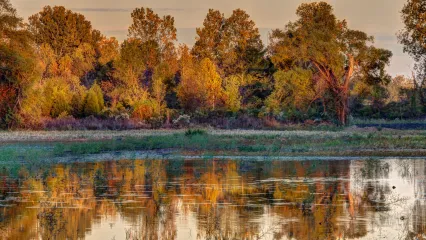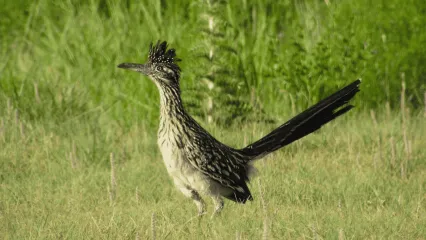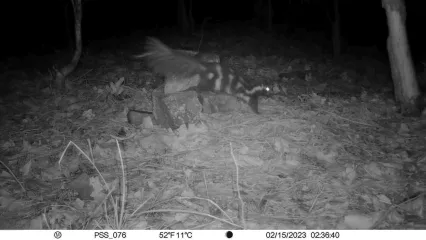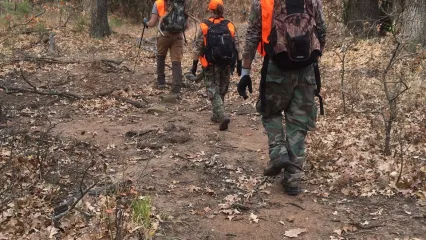Attention Non-Residents
The Oklahoma Wildlife Conservation Commission adopted new rules in 2025 that require non-residents accessing certain Oklahoma public hunting and fishing areas to check in and out of the area. By checking in and out of these areas, hunters, anglers, shooters, birdwatchers, hikers and any other users can help the Wildlife Department better understand how the area is being used. There is no additional cost associated with checking in or out of an area. There is no limit to the number of check ins for an individual in a year.

Contacts
Area Details
For details on Sequoyah NWR visit our partners with the USFWS:
Unless otherwise provided, hunting is permitted on Saturday, Sunday, Monday and Tuesday only and in designated areas only. Contact the refuge for special restrictions.
All shotgun hunting is restricted to federally approved nontoxic shot.
A free permit is required for all hunting. The permit must be signed and carried at all times while hunting. Permits may be obtained from various entrance points to the refuge, refuge headquarters or the Sequoyah NWR website, www.fws.gov/refuge/sequoyah.
Area closed to all activities for controlled deer hunts:
Oct. 17-19, 2025
Oct. 29-31, 2025
Nov. 10-14, 2025
Nov. 19-21, 2025
Dec. 3-5, 2025
Closed Seasons
Same As Statewide Seasons
Seasons w/ Special Restrictions
- Dove
Mourning Dove only.
- Squirrel
Open Sept. 1 - Jan. 31.
- Rabbit
Closes Jan. 31.
- Duck, Merganser and Coot
Contact the refuge for special restrictions.
The refuge tour road is closed past Tuff Causeway during controlled deer hunts.
Air-driven watercraft are confined to the marked navigation channel from Sept. 1 - March 31.
For One Survey Team, “Getting Skunked” Smells Like Success
Getting skunks on camera was a critical first step in an Oklahoma State University survey team’s effort to learn more about the Plains spotted skunk population in southeastern Oklahoma. The secretive and little-known skunk was detected at about half of the survey sites on the Ouachita National Forest.
Apprentice Designation: A Learner's Permit for Hunting
Hunter education has greatly reduced hunting accidents, but if you can’t complete a course right away, the apprentice designation allows you to hunt under supervision. It works like a learner’s permit, giving you the chance to gain real experience safely until you finish hunter education.


